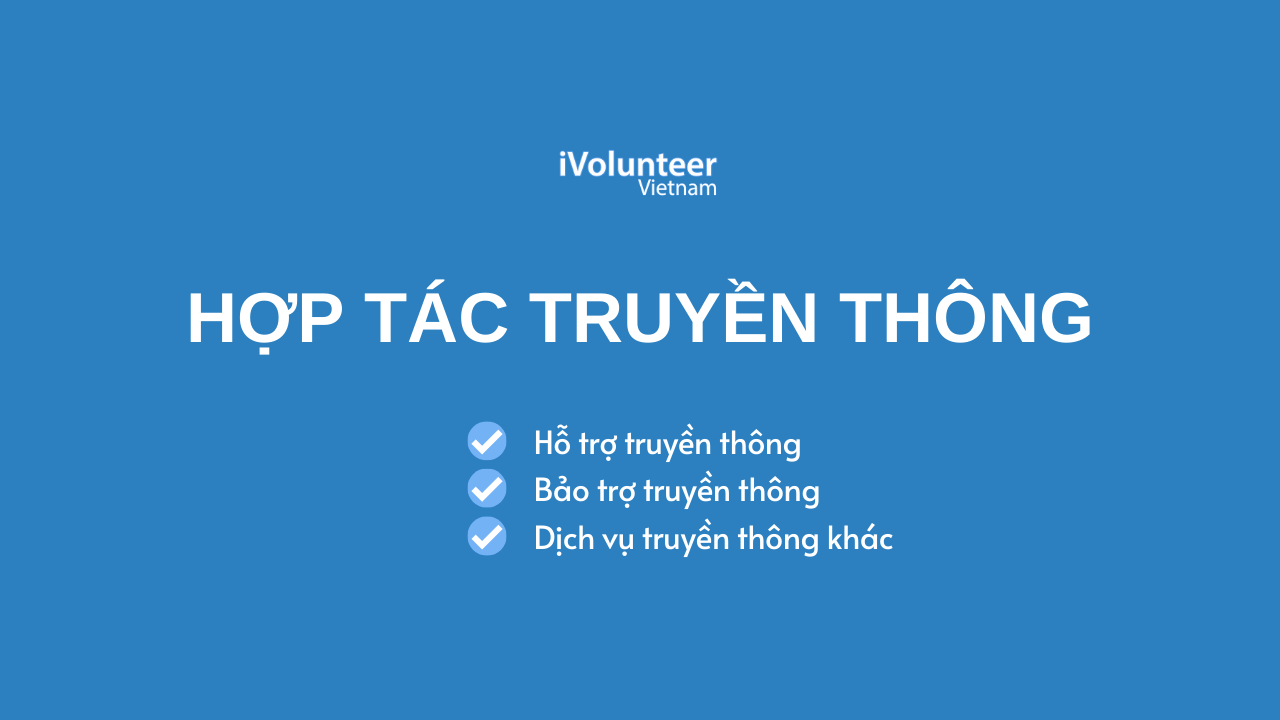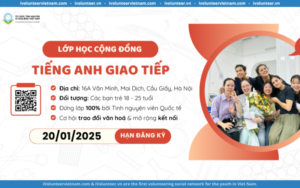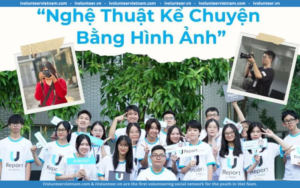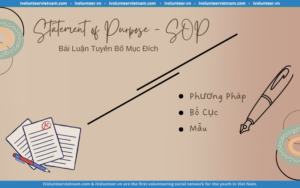10 Tips Ôn Tập Trước Kỳ Thi
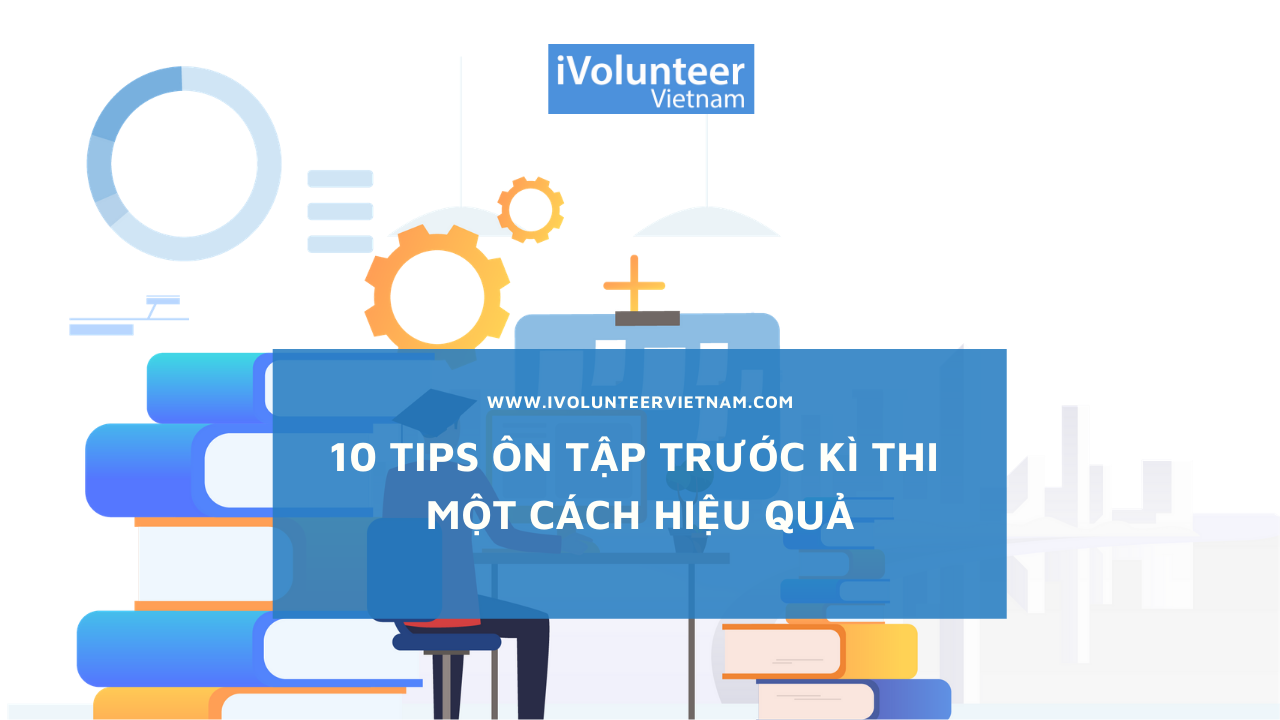 [English Caption Below]
Đối với mỗi người, ai cũng sẽ phải trải qua các kỳ thi các bài kiểm tra trong quãng thời gian làm học sinh của mình. Hầu hết mọi người đều hoang mang và không biết bắt đầu ôn tập lại từ đâu để trang bị cho mình kiến thức đầy đủ nhất trước mỗi kỳ thi và gần đây nhất chính là kỳ thi THPT quốc gia năm 2021 sắp diễn ra. Qua bài viết này, iVolunteer muốn gửi đến tất cả các bạn học sinh sinh viên những mẹo hay ôn tập chuẩn bị cho các kỳ thi mà các bạn phải tham gia.
1/ Lên kế hoạch ôn tập chi tiết?
Nghiên cứu đã chứng minh, tần suất ôn tập trong khoảng 20-30 phút là tốt nhất bởi khi đó, sự tập trung của bạn là cao độ nhất. Vì thế chúng ta nên có thời gian nghỉ giải lao ngắn nhưng thường xuyên. Việc học xen kẽ thay vì ôn “một lèo” mấy tiếng 1 môn cũng được cho là hiệu quả hơn. Ví dụ nhé:
[English Caption Below]
Đối với mỗi người, ai cũng sẽ phải trải qua các kỳ thi các bài kiểm tra trong quãng thời gian làm học sinh của mình. Hầu hết mọi người đều hoang mang và không biết bắt đầu ôn tập lại từ đâu để trang bị cho mình kiến thức đầy đủ nhất trước mỗi kỳ thi và gần đây nhất chính là kỳ thi THPT quốc gia năm 2021 sắp diễn ra. Qua bài viết này, iVolunteer muốn gửi đến tất cả các bạn học sinh sinh viên những mẹo hay ôn tập chuẩn bị cho các kỳ thi mà các bạn phải tham gia.
1/ Lên kế hoạch ôn tập chi tiết?
Nghiên cứu đã chứng minh, tần suất ôn tập trong khoảng 20-30 phút là tốt nhất bởi khi đó, sự tập trung của bạn là cao độ nhất. Vì thế chúng ta nên có thời gian nghỉ giải lao ngắn nhưng thường xuyên. Việc học xen kẽ thay vì ôn “một lèo” mấy tiếng 1 môn cũng được cho là hiệu quả hơn. Ví dụ nhé:
- 00-9.30 Môn 1
- Giải lao 5 phút
- 35-10.05 Môn 1
- Giải lao 5 phút
- 10-10.40 Môn 2
- Giải lao 5 phút
- 45-11.15 Môn 2
- Giải lao 5 phút
- 45-12.15 Môn 3
- Giải lao 5 phút
- 20-12.50 Môn 3
- Giải lao 5 phút
- 50-14.20 Môn 1
- Giải lao 5 phút
- 25-14.55 Môn 2
- Giải lao 5 phút
- 00-15.30 Môn 3
- Giải lao 5 phút
- 35-16.05 Môn 1
 .
3/ Tìm một nơi yên tĩnh?
Điều này thì rõ rồi. Bạn cần tìm một nơi yên tĩnh mà không ai có thể làm phiền trong thời gian ôn tập. Phòng của bạn, thư viện trường, thư viện địa phương là những gợi ý tốt. Bạn nên cẩn thận khi chọn ôn bài ở những quán café nhé. Những nơi này thì nhiều người đến đấy, nhưng không hiệu quả với tất cả mọi người đâu. Thường thì mọi người sẽ dễ bị mất tập trung hơn.
4/ Bắt đầu từ buổi sáng?
Bạn nên bắt đầu ôn tập từ sáng, và bắt đầu làm sớm thì tốt hơn. Hãy cố tuân thủ lịch ôn tập đã đề ra và bắt đầu từ buổi sáng. Lý do ư? Nghiên cứu đã chứng minh, con người thường có xu hướng hoàn thành các công việc theo kế hoạch nếu bắt đầu làm sớm, bởi vì càng gần buổi tối, bạn càng có xu hướng ra ngoài đường hơn.
.
3/ Tìm một nơi yên tĩnh?
Điều này thì rõ rồi. Bạn cần tìm một nơi yên tĩnh mà không ai có thể làm phiền trong thời gian ôn tập. Phòng của bạn, thư viện trường, thư viện địa phương là những gợi ý tốt. Bạn nên cẩn thận khi chọn ôn bài ở những quán café nhé. Những nơi này thì nhiều người đến đấy, nhưng không hiệu quả với tất cả mọi người đâu. Thường thì mọi người sẽ dễ bị mất tập trung hơn.
4/ Bắt đầu từ buổi sáng?
Bạn nên bắt đầu ôn tập từ sáng, và bắt đầu làm sớm thì tốt hơn. Hãy cố tuân thủ lịch ôn tập đã đề ra và bắt đầu từ buổi sáng. Lý do ư? Nghiên cứu đã chứng minh, con người thường có xu hướng hoàn thành các công việc theo kế hoạch nếu bắt đầu làm sớm, bởi vì càng gần buổi tối, bạn càng có xu hướng ra ngoài đường hơn.
5/ Thêm “gia vị” cho bài ôn tập ?
Việc ôn tập sẽ trở nên thú vị và dễ nhớ hơn nếu bạn tô thêm sắc màu cho tài liệu học. Ví dụ như việc viết note, làm bản đồ ôn tập, mindmap đầy màu sắc chắc chắn sẽ giúp bạn hào hứng hơn, nhớ các dữ kiện dễ hơn là ghi chép trên “giấy trắng mực đen” thông thường.
6/ Làm lại các bài tập cũ?
Hãy hỏi thầy cô về những bài thi trước đây hoặc tự google chúng. Hiện nay, hầu hết những bài thi thường chú trọng vào kỹ năng làm bài và chỉ cần làm quen với các dạng bài trước là bạn có thể tiết kiệm thời gian và đạt điểm cao rồi. Rất nhiều giám khảo không bận tâm đến việc sáng chế ra những câu hỏi cực kỳ sáng tạo một khi bạn đã hoàn thành ba hay bốn trang bài tập trước đó và rất có thể những dạng câu hỏi đó sẽ rất quen thuộc.
7/ Làm một bản tóm tắt, tổng kết kiến thức?
Viết ghi chú (notes) vẫn luôn là cách tốt nhất giúp bạn ghi nhớ được nhiều kiến thức. Bạn vẫn tưởng là nằm xuống và đọc một quyển sách giáo khoa là hiệu quả nhất nhưng thật ra không phải! Cách tốt nhất để ghi nhớ thông tin chính là viết ghi chú và viết đi viết lại nhiều lần. Điều này dường như là tẻ nhạt nhưng thực tế là, hầu hết các học sinh thành công đều viết rất nhiều ghi chú – thong thường khoảng 3 lần với cùng một nội dung và điều này giúp họ ghi nhớ những thông tin cần thiết cho các kỳ thi.
8/ Tự thưởng cho bản thân?
Học không phải là tất cả, bạn cũng cần thư giãn. Các bạn học sinh cân bằng hợp lý việc học tập và giải trí thường là những người đạt điểm cao nhất. Ví dụ như việc đi xem phim cùng bạn bè sau một ngày ôn tập hiệu quả là một cách thưởng ngọt nào cho bản thân. Tóm lại, phương châm là “Học” hết sức mà “Chơi” một chút cũng là một cách hay.
9/ Sự trợ giúp của gia đình và bạn bè?
Nhờ những người xung quanh giúp bạn “dợt” bài, kiểm tra bài và góp ý. Bạn nên có sẵn những note ôn tập (xem lại tip số7). Ví dụ như đưa note cho mẹ và nhờ giúp bạn kiểm tra bài Lịch sử giùm chẳng hạn. Tại sao không?? Đây không phải là cách duy nhất nhưng nó là một gợi ý hay để bạn có những phút giải lao trong khoảng thời gian học tập vất vả.
10/ Suy nghĩ tích cực?
Suy nghĩ tích cực là chìa khóa giúp bộ não của bạn được thông thái, sắp xếp thông tin logic và có tổ chức hơn. Bước vào kỳ thi, nhiều bạn học sinh cảm thấy rất áp lực và sợ hãi. Trên thực tế, áp lực là một điều tốt giúp chúng ta tập trung và có mục tiêu. Vấn đề là bạn cần nhìn nhận nó tích cực để khiến nó thành động lực và sức mạnh tinh thần. Ví dụ như coi nó như một thách thức mà mình cần vượt qua, đừng nghĩ “mình không làm được” mà hãy nghĩ “nếu mình cố gắng, có kế hoạch thì mình sẽ làm được”. Và nếu bạn lo lắng vì áp lực này quá thì hãy tìm đến người thân và bạn bè. Điều này sẽ giúp bạn. Kelly McGonigal, nhà tâm lý học đã chứng minh điều này.
——————————————————————
For each person, one must experience exams and tests during their time as a student. Most people are confused and do not know where to start revising to equip themselves with the most complete knowledge before each examination and recently is the upcoming national high school examination in 2021. That’s why iVolunteer wants to send all students beneficial tips to prepare for their exams.
1/ Draw up a revision timetable
It has been proven, the frequency of review in about 20-30 minutes is the best because at that time your concentration is achieved the highest. Therefore we should take short breaks but frequently. Alternating learning instead of reviewing “once at a time” for a few hours is also said to be more effective. Let’s example:
- 00-9.30 Subject 1
- 5 – minute break
- 35-10.05 Subject 1
- 5 – minute break
- 10-10.40 Subject2
- 5 – minute break
- 45-11.15 Subject 2
- 5 – minute break
- 45-12.15 Subject 3
- 5 – minute break
- 20-12.50 Subject 3
- 5 – minute break
- 50-14.20 Subject 1
- 5 – minute break
- 25-14.55 Subject 2
- 5 – minute break
- 00-15.30 Subject 3
- 5 – minute break
- 35-16.05 Subject 1
2/ Exercise
Physical activity is extremely important during the time of your intense learning. For example, taking a 30-minute walk after a stressful day of revision is really advantageous for you. Exercise will help your heart – beat increase and blood will circulate faster. Thanks to exercise, your brain will “load” more oxygen, be more “productive”, and simultaneously, reduce fatigue and stress?
3/ Find a quiet space
This is clear. You need to find a quiet place where no one can disturb you while studying. Your room, the school library, the local library are good suggestions. You should be careful when choosing to study at coffee shops. These places are common with people, but they don’t work for everyone. People will often be more easily distracted.
4/ Get down to it in the morning
You should start studying in the morning, and it’s better to start working early. Try to comply with the review schedule and start in the morning. The reason why? Research has shown that people tend to complete tasks as planned if they begin to work early, since the closer the evening comes, the more likely you are to go out.
5/ Spice up your revision
Reviewing will become more interesting and memorable if you add color to the studying material. For example, writing notes, making review maps, and colorful mind maps will definitely help you be more excited, remembering the facts easier than taking notes on ordinary “black and white paper”.
6/ Do plenty of past papers
Ask your teacher about past tests or search them in google. Currently, most of the tests often focus on test-taking skills, therefore, just by getting used to the previous types of tests can save you time and get a high score. A lot of examiners don’t bother inventing acutely creative questions once you have completed the previous three or four pages of exercise and maybe those question types will be familiar.
7/ Make summary notes
Taking notes is still the best way to help you remember a great amount of knowledge. You may consider that lying down and reading a textbook is the most effective one, but it’s not! The best way to memorize information is to take notes and write it over and over again. This may seem tedious, in fact, most successful students write a lot of notes – usually about 3 times with the same content that helps them remember the essential knowledge for the exams
8/ Reward yourself
Learning is not everything, you also need to relax. Students who balance properly between study and leisure are generally the ones who get the best results. For example, going to the movies with friends after a productive day of reviewing is a fruitful way to reward yourself. In short, the motto is “Study hard” and ”Play a little” is also a nice way.
9/ Use your family and friends
Ask the people around you to help you “rehearse” the lesson, check it and give some suggestions. You should have practice notes on hand (see tip #7). For example, give your mom a note and ask her to help you check your History exercise. Why not?? This is not the only way, but it is a good implication for you to take a break during a hard time studying.
10/ Think Positive!
Positive thinking is the key to keeping your brain informed, logical and organized. Entering the exam, many students feel a lot of pressure and fear. In fact, pressure is a good thing that helps us stay focused and goal-oriented. The problem is that you need to see it positively to make it a motivation and spiritual power. For example, regard it as a challenge that we need to overcome, do not think “I can’t do it” but think “if I try and have a plan, I can do it”. And if you are worried about being under too much pressure, you should talk to relatives and friends. This will help you. Kelly McGonigal, psychologist, proved that.
Try your best for your examination?!
===========
Nguồn: https://ivyprep.edu.vn/10-tips-on-tap-truoc-ky-thi/
Tác giả: IVYPREP
Xin chân thành cảm ơn tác giả về những chia sẻ vô cùng hữu ích cho mọi người trước các kỳ thi. Mong rằng những chia sẻ trên có thể giúp ích được cho tất cả mọi người trong tương lai!
Shortlink: https://ivolunteervietnam.com?p=23361
Trong quá trình tổng hợp và chia sẻ thông tin, các tình nguyện viên/ cộng tác viên/ thành viên rất khó tránh khỏi thiếu sót. Rất mong được độc giả cảm thông và góp ý tích cực để giúp iVolunteer Vietnam ngày một hoàn thiện & phát triển.
-
iVolunteer - Cơ hội tình nguyện cho sinh viên và giới trẻ Việt Nam
- Website: https://ivolunteervietnam.com/
- Email: connect@ivolunteer.vn
- Facebook: https://www.facebook.com/pg/iVolunteerVietnam
- Instagram: https://www.instagram.com/ivolunteervietnam
- Group: https://www.facebook.com/groups/thongtintinhnguyen
- Youtube: https://www.youtube.com/c/iVolunteerVietnam
- TikTok: https://www.tiktok.com/@ivolunteervietnam.com



